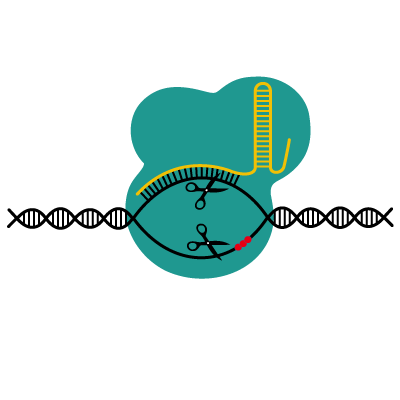2023 was a big year for CRISPR-based gene editing but challenges remain
By Malak Saleh,
Engadget [Cites CGS' Katie Hasson]
| 12. 20. 2023
2023 was an important year for patients with sickle cell disease. Prior to CRISPR, the only cure for the life-long ailment was a bone marrow transplant, which is notoriously dangerous and costly. This month, the FDA approved Vertex’s “Casgevy,” a CRISPR-based therapy for the treatment of sickle cell disease in patients 12 and older. The landmark approval made the therapeutic the first genetically edited therapy to reach the general market.
Casgevy, which also received the greenlight from regulators in the UK for another blood disorder called beta thalassemia, works by being administered in a single-infusion of genetically modified stem cells to a patient. Clinical study participants that took Casgevy were free from symptoms associated with sickle cell disease, like periodic episodes of extreme pain due to blocked blood flow through vessels, for up to a year.
CRISPR, which modifies precise regions of a human’s DNA strands, was once thought to be a far off scientific innovation. Human cells were first modified using CRISPR in clinical trials in China back in 2016. Less than a decade...
Related Articles
By Diaa Hadid and Shweta Desai, NPR | 01.29.2026
MUMBRA, India — The afternoon sun shines on the woman in a commuter-town café, highlighting her almond-shaped eyes and pale skin, a look often sought after by couples who need an egg to have a baby.
"I have good eggs,"...
By George Janes, BioNews | 01.12.2026
A heart attack patient has become the first person to be treated in a clinical trial of an experimental gene therapy, which aims to strengthen blood vessels after coronary bypass surgery.
Coronary artery bypass surgery is performed to treat...
By Staff, ScienceDaily | 01.05.2026
Scientists at UNSW Sydney have developed a new form of CRISPR technology that could make gene therapy safer while also resolving a decades-long debate about how genes are switched off. The research shows that small chemical markers attached to DNA
...
Following a long-standing CGS tradition, we present a selection of our favorite Biopolitical Times posts of the past year.
In 2025, we published up to four posts every month, written by 12 authors (staff, consultants and allies), some in collaboration and one simply credited to CGS.
These titles are presented in chronological order, except for three In Memoriam notices, which follow. Many more posts that are worth your time can be found in the archive. Scroll down and “VIEW...




